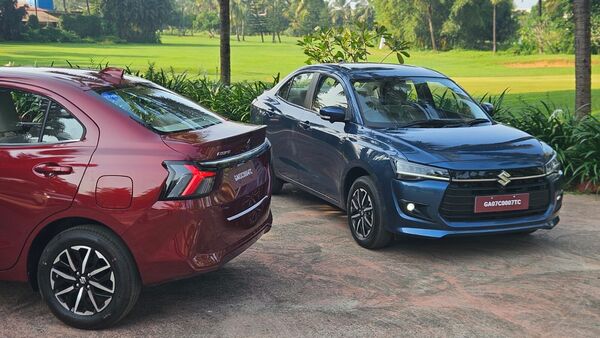The carmaker’s export performance has been notably strong in recent months. In May 2025 alone, Maruti Suzuki witnessed an 80 per cent year-on-year growth in exports. Meanwhile, looking at the combined performance for April and May, the exports for the carmaker surged by 50 per cent. Rahul Bharti, Executive Director, Corporate Affairs at Maruti Suzuki India, explained that this vigorous export drive has proven crucial in offsetting a somewhat softer domestic wholesale market, allowing the company to report an overall sales growth of 3.2 per cent in May and 5 per cent for the April-May period, inclusive of exports.
Maruti Suzuki’s diversified export strategy spans a wide geographical canvas, ensuring resilience across various global economic conditions. The company is present in approximately 100 countries worldwide. Key markets significantly contributing to its export volumes include Africa, Latin America, and Southeast Asia. Notably, Japan has swiftly risen to become the second top destination for Maruti’s exports, a testament to the strong reception of specific models there.
Also Read : Maruti Suzuki foresees subdued passenger vehicle demand in coming years, increasing challenges looms ahead
Other significant markets include Chile, Saudi Arabia, and Mexico. Maruti’s top five exporting models prominently feature the Fronx, Baleno, Swift, Dzire, and Jimny. The Fronx and Jimny, in particular, have been instrumental in driving incremental volumes in new markets like Japan.
Circling back to small cars for overall industry growth
While exports provide a crucial growth buffer, Maruti Suzuki is keenly observing the dynamics of the domestic Indian market. In May, MSIL’s wholesale figures in the domestic market stood at 1,35,962 units, reflecting a general alignment with an industry that saw wholesale numbers flat at around 3,51,000 units.
However, factoring out new model introductions from the previous year’s base reveals an underlying 8 per cent degrowth in wholesale numbers, Partho Banerjee, Senior Executive Officer, Marketing and Sales, Maruti Suzuki India Limited, explained. Retail sales, as indicated by ‘Vahan’ data, also showed a degrowth of approximately 4 per cent for both MSIL and the industry in May, signalling a slowing market despite the presence of new models, he added.

Several factors contribute to this subdued domestic demand. However, the significant issue behind this as highlighted by MSIL is the rising cost of small cars, primarily due to increasing regulatory compliance expenses. It’s noted that regulatory purposes account for around 60 per cent of the cost increase in small cars, making affordability a considerable challenge for customers looking to upgrade from two-wheelers to four-wheelers.
Also Read : Maruti calls for small car revival to drive auto growth, banks on exports for near-term gains
This impacts the entry-level segment where sales have been low, despite consistent inquiry levels, as financing becomes difficult for many prospective buyers. The share of this segment has been consistently declining, with some customers potentially opting for used cars.
Other key reasons behind de-growth
Adding to these economic pressures, specific regional challenges have emerged more specifically due to the recent India-Pakistan war. Maruti Suzuki has noted a discernible impact from military actions in the border areas of Jammu & Kashmir, Punjab, Rajasthan, and Gujarat. These states, where MSIL enjoys a substantial 55 per cent market share and collectively contribute close to 22 per cent of its total sales, have seen a direct hit.
Also Read : Maruti Suzuki reports drop in domestic sales while exports continue to rise. Check details
The situation has led to significant disruptions, with many bookings getting cancelled. Cities dependent on tourism in these regions have also experienced a decline in customer footfall, further compounding the sales slowdown. While urban market sentiments are not overtly positive, rural demand, which now constitutes almost 50 per cent of MSIL’s sales, is anticipated to receive a boost from the forecasted good monsoon.
The hybrid taxation debate
Maruti Suzuki has also voiced concerns regarding the taxation of strong hybrid electric vehicles (sHEVs) in India. The company argues that it is unfair for strong hybrids to be taxed at the same rate as pure petrol and pure diesel vehicles. MSIL posits that hybrids represent a cleaner technology that can replace conventional petrol and diesel cars.
However, there is a “viability gap” in hybrids, and taxing them equally with pure ICE vehicles means they “cannot be taxed equal to pure petrol and diesel”, Bharti emphasised. The company suggests hybrids “need a treatment” different from conventional vehicles, highlighting that the economic viability is a struggle due to GST and state taxes. MSIL believes that as long as pure petrol and diesel cars are sold, hybrids, being a cleaner alternative, deserve a more favorable tax structure.
Prioritising safety: Addressing perceptions
Furthermore, Maruti Suzuki is actively working to dispel the long-held perception that its vehicles lack safety. The company has introduced the ‘Arena Safety Shield’ campaign, emphasizing that it now offers six airbags as a standard feature across all variants of its entry-level vehicles, including models like the WagonR and also Electronic Stability Program (ESP) in the LCV segment. However, the company added that in the course of next two to three months, it also plans to add six airbags on a few other models like the Maruti Suzuki Baleno and the Ertiga.
Also Read : Farewell Ciaz? Maruti Suzuki hints at a possible revival in a new form
This comprehensive approach to safety, where 97 per cent of its models will soon have six airbags as standard, aims to educate customers that Maruti Suzuki vehicles are “much, much better” than perceived, challenging previous myths about Maruti cars.
Get insights into Upcoming Cars In India, Electric Vehicles, Upcoming Bikes in India and cutting-edge technology transforming the automotive landscape.
First Published Date: 03 Jun 2025, 06:47 AM IST







